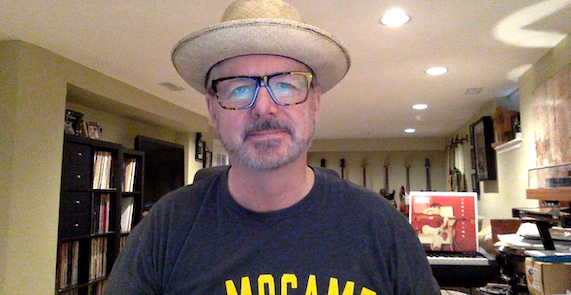The Digital Dark Age - with Dag Spicer
Born digital content is now the norm. In 2017, over 1.2 trillion digital photographs alone were created. Unfortunately, while digital assets offer many desirable features, persistence is not one of them. We are fast approaching a “digital dark age” in which our civilization’s most critical knowledge is at risk due to digital technology itself, Are there simple solutions to ensure that the cultural heritage and human knowledge created today will be available to future generations?
Our guest for the third episode of #forwhatitsworth is#dagspicer, Senior Curator of the #ComputerHistoryMuseum in Mountain View California in the heart of the Silicon Valley, the world's first and largest computer museum. Dag regularly conducts Media interviews; liaises with U.S. Government national research laboratories and universities; deals with legal and commercial intellectual property issues, and organizes public computer history lectures. Dag is a writer on topics related to computer history for various media and scholarly organizations.
For our Canadian listeners, Dag is the son of Keith Spicer, well known Academic, Political Advisor, Journalist and Writer; Head of the CRTC and Canada’s First Language Commissioner.
Is this first of a two part episode of #forwhatitsworth, Dag explains how the rapid advancement in Information Communication Technology over the next few years, will make many of our digital assets unreadable. This has profound implications for both our personal histories as well for the preservation of global historical knowledge.
The spectre of "#DigitalDarkAge" first brought to light by the Computer History Museum, was so profound that Vinton Cerf, VP of Google and the grandfather of the Internet, showed his concerns about data preservation in the annual meeting of the American Association for the Advancement of Science in 2015:
"As the way that we store information about ourselves develops, memories stored in files that use older technology are becoming harder to access. That could mean that historians of the future are unable to learn about our lives". His suggested solution consists of preserving a sample of every piece of software and hardware that has ever existed so that it never becomes obsolete"
"As the way that we store information about ourselves develops, memories stored in files that use older technology are becoming harder to access. That could mean that historians of the future are unable to learn about our lives". His suggested solution consists of preserving a sample of every piece of software and hardware that has ever existed so that it never becomes obsolete"
While Cerf's proposed solution may address the preservation of important and significant inventions and innovations, what about our personal family memories and artifacts; the things which give us and subsequent generations, connection to our histories which help to define our place in the world?
Links to Resources Mentioned in the Podcast
- The Computer History Museum
- Leaf Snap - Free AI Electronic Field Guide
- Finland's Public AI Course
- The New Dark Age - James Bridle
- The Canadian AI Super Cluster




Comments
Post a Comment